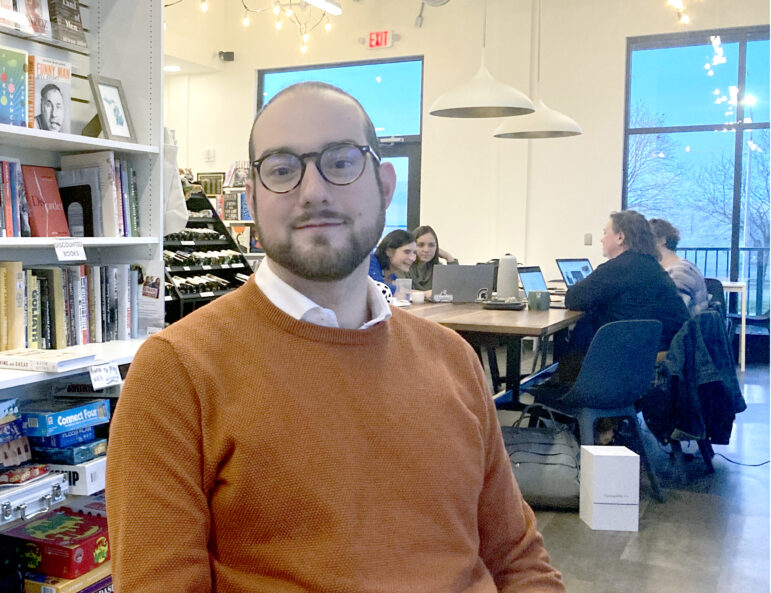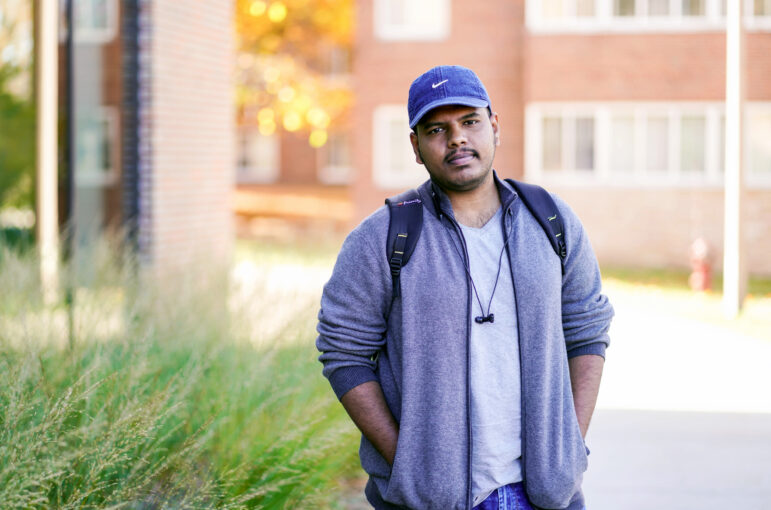Angelica Bernabe has been following the candidates and issues in the 2022 election campaigns. She’s watched debates and YouTube and been part of class discussions.
But Bernabe, a first-year master’s student at Michigan State University, can’t vote in the U.S. election. She’s among nearly 9,000 international students on the East Lansing campus.
“I was shocked when I was watching debates on YouTube. I have never seen U.S. election campaigns before,” said Bernabe, 27, who worked as a psychologist with people who have speech disorders in her home country of Peru. “The candidates are so opposite, the way how the second person is responding to the first one is unexpected and shocking. They are aggressive. I am not used to that in my country.”
The East Lansing community has a larger international population than most of the United States, largely due to the presence of MSU. According to the 2020 Census, about 10.3% of the people living in East Lansing are non-U.S. residents, 3.7 percentage points more than the country has a whole.

Audra Skuodaite
Giuseppe Donadeo, a Michigan State University doctoral student in history from Italy, said the U.S. election campaign process is different from what he is used to in his home country. “Here, you have more of an American sense,” Donadeo said. “You can feel that when you look at the ads – they are more fictitious and staged.”For Giuseppe Donadeo, 26, a doctoral student in history at MSU who moved to the United States from Italy a few months ago, the midterm elections are a reminder that he is still an outsider in this country.
“It is not the act of voting per se, it is the fact that you are an alien in a foreign country,” Donadeo said. “So everything is more difficult. Basically, it is just a reminder that you have to go through different and longer procedures whenever you need something from the public administration.”
Donadeo said he hopes the outcome of the election won’t impact his daily life, but he’s worried that concerns about education raised by some campaigns could affect his academic career.
“In my history course, one of the topics we are constantly teaching is, for example, socialism and communism,” he said. “And now I’m afraid that that will lead to some sort of controversy, should one specific party win the election. Because, you know, an immigrant talking about such topics could be viewed as becoming radicalized and then targeted in some ways.”

Audra Skuodaite
Althaf Shaik, a Michigan State University master’s student from India, said he wishes that young people were more interested in politics in the U.S. “The people who have been born and brought up here and have the right to vote, they should come forward,” Shaik said.Althaf Shaik, 23, a finance master’s student from India, said he felt excluded from opportunities to learn about American candidates and their agendas. Back home, he said he helps educate people about the importance and procedures of voting.
“I feel like I should get the opportunity to — even though I might not get the option of voting — but I should at least get the opportunity to speak about the person or to understand the person, go to the campaigns,” Shaik said. “I don’t have the exposure to all the campaigns that are happening. I only have the exposure through my mobile and social media.”
Shaik said non-citizen residents should have at least a partial say in U.S. elections because they can have a direct impact on policies that affect immigrant communities and other long-term residents.
Selin Akkun, a fourth-year doctoral student in the College of Education, said she found American election campaigns completely different from her home country of Turkey. She said there’s a higher level of public interest in Turkish elections.
“The last presidential election campaign was much more dynamic here when everybody was curious who will win: Biden or Trump,” she said. “But for my American friends at college, it is important, they were going to vote especially because of some controversial issues such as abortion rights.”
Canadian citizen Shannon DeLap, who lives near campus, said she actually knows less about Canadian politics since she’s lived in Michigan for so long. DeLap leads a Bible study group with college students, and she said many of her students were excited about voting.
“I work with college students here at Michigan State and a lot of them are first-time voting, so they were researching what different proposals meant and what their beliefs are,” she said. “There are also some friends who focus more on the emotions behind it, like hearing something but not researching it. But I have friends as well who really are researching for what they are voting.”